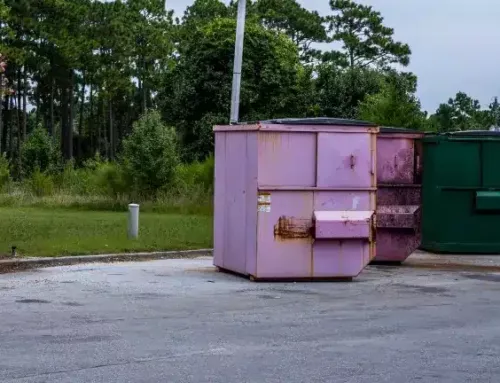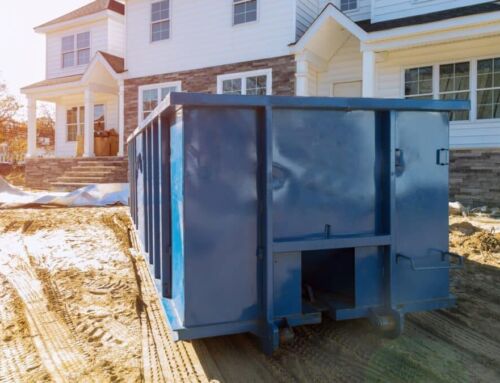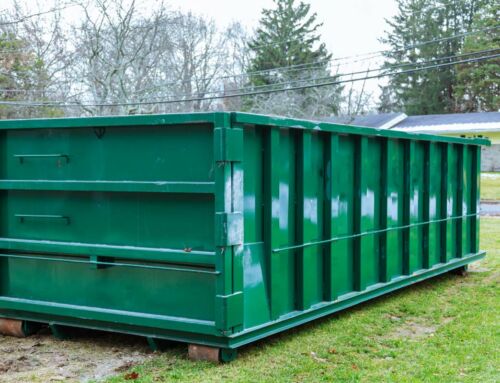Last Update
Table of Contents
In today’s world, the art of recycling and the need to organize your waste have become more than just passing trends – they’re necessities. With the hustle and bustle of everyday life, people move residences frequently, often without realizing the immense environmental toll such transitions entail. Boxes piled high, packing materials strewn about, and discarded items contribute to a considerable waste footprint. Organizing your waste can significantly mitigate these impacts. As the earth grapples with the adverse effects of our choices, understanding how even the simple act of moving can exacerbate the problem becomes essential.
However, there’s a silver lining. Just as moving can create waste, it also presents a unique opportunity for individuals to make conscious choices and adopt sustainable practices. By weaving the principles of recycling into our moving routine, we can alleviate the waste produced and pave the way for a greener, more responsible future.
Ways to Incorporate The Art of Recycling During Residential Moves
Enter the art of recycling during residential moves. This method isn’t just about segregating waste; it’s about embracing a holistic approach to reduce, reuse, and recycle. So, maximizing the use of your dumpster rental for a stress-free move plays a pivotal role in this process. It ensures that we efficiently manage waste, making our transition from one home to another as eco-friendly as possible. Here are some of the top ways to incorporate the art of recycling during your transition.
The Before Move Cleanout: It Begins with Decluttering
Decluttering before packing isn’t merely about space – it’s about sustainability. Every item we choose not to move lessens the environmental burden. Now, think of the items lurking in closets or under beds. Instead of transferring unused or unwanted items, decluttering can lighten the load. Therefore, fewer items mean fewer boxes, which means fewer trips, reduced emissions, and lowered costs.
Furthermore, decluttering should be done with responsibility. Tossing everything in the trash isn’t the answer. Instead, consider donating usable items to local charities. Organize a garage sale or leverage online marketplaces for items with monetary value. For the rest, discern if they can be recycled. This way, we reduce waste and give our possessions a second life.
Choosing Eco-Friendly Packing Supplies: Think Green!
Conventional packing supplies often end up as waste. Fortunately, alternatives abound. Instead of bubble wrap, which can be harmful to the environment, repurpose old newspapers or towels for padding. They’re just as effective and can be reused or recycled later. Additionally, consider biodegradable packing peanuts. They provide the same protection without the lingering environmental impact.
Recycling isn’t just about waste – it also involves reusing. Rather than purchasing new boxes, repurpose the ones you already have. They’re often sturdy enough for multiple uses. If you’re short, turn to local stores. Many will gladly offer unused boxes, ensuring they’re reused instead of discarded. This approach is not only green but also cost-effective.
The Art of Recycling: Properly Dispose of Unwanted Items
Understanding local recycling guidelines is essential when it’s time to dispose of items. Different municipalities may have specific requirements for paper, plastics, or glass. Ensuring items are correctly sorted boosts the efficiency of recycling plants and reduces contamination.
Electronics pose a particular challenge. With metals and chemicals, they shouldn’t end up in regular trash. Research local e-waste initiatives or drop-off locations. Many electronics stores or community programs offer safe disposal or recycling options. It’s a small step that guards against environmental harm.
Efficient Loading and Transportation: Reducing Carbon Footprints
Moving with a reduced carbon footprint is more attainable than many realize. Green moving companies are emerging as champions of eco-friendly transitions. They employ sustainable practices, from packing materials to fleet choices, significantly reducing the environmental impact. In fact, a recent study by movers in Downtown Los Angeles highlighted the immense potential of using eco-friendly transportation during relocations. Their findings suggest that adopting green transportation can reduce carbon emissions by a significant percentage, further emphasizing the necessity and benefits of eco-friendly moves.
Efficient loading plays an unnoticed yet vital role. Maximizing space can minimize trips and, therefore, emissions. Furthermore, consider vehicles running on alternative fuels. Whether electric trucks or biodiesel vans, these options release fewer pollutants, marking another step toward a cleaner move.
Setting Up in Your New Place: A Fresh Start
A new home offers the perfect canvas for sustainable living. Initiate with a dedicated recycling corner. Ensure it’s accessible, urging all members to use it. The early establishment instills a habit of streamlining waste management.
Furnishing your home? Think recycled or upcycled. Many eco-friendly brands offer stylish options, breathing life into reused materials. Similarly, minimalism isn’t just a design trend. By owning fewer quality items, we reduce consumption, waste, and, eventually, the clutter. It’s a lifestyle choice that’s kinder to our planet.
Share Your Experience: Influence and Inspire Others
The power of shared experiences is profound. Sharing your green move on social media can inspire countless others. Detailing the steps taken, challenges faced, and the ultimate satisfaction can motivate peers to adopt similar practices, including finding an eco-friendly way to dispose of your waste. After all, collective efforts amplify individual impacts. Emphasizing the importance of responsible waste disposal further fosters a sustainable mindset among your audience.
Encouraging those in our circle can make a difference, too. Talk to friends or family about the benefits and ease of recycling during moves. Offer them tips or share resources. Spreading the word can normalize sustainable moving, inching closer to a greener future.
Conclusion
Sustainable moving is more than just a trend – it’s also our responsibility to the planet we live in. The benefits, both environmental and personal, are undeniable. It’s essential that we not only acknowledge the profound impact of the art of recycling during residential moves but also integrate it into every aspect of our lives. Embracing this approach promises a brighter, greener future for all.




